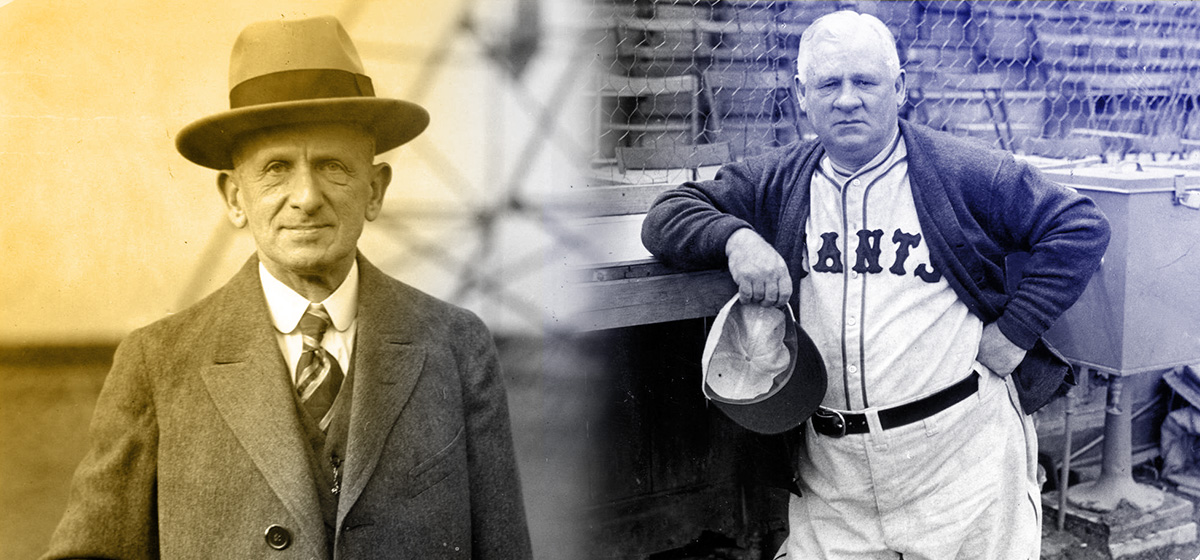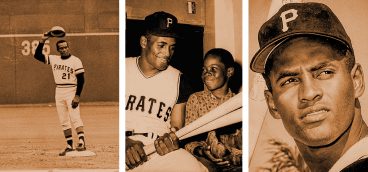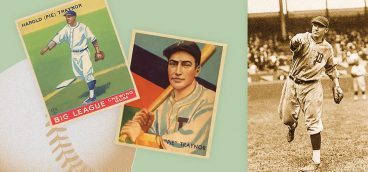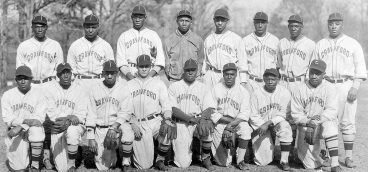The Pirates’ First Great Rivalry: The Dreyfuss-McGraw Feud

Sports rivalries usually develop between teams that are competing with each other for league championships. For the Pirates, it was the Reds in the 1970s, the Phillies in the 1980s, and the Braves in the 1990s. Once the teams are no longer contenders, the rivalry fades away.
The most intense and bitter rivalry for the Pirates began in the first decade of the 20th century and lasted for over two decades. While it involved teams that competed season after season for the National League championship, it was fueled by an improbable personal feud between an owner and a manager.
In 1900, Barney Dreyfuss, after the National League dropped his Louisville franchise, bought the Pittsburgh Pirates. Dreyfuss transformed the struggling Pirates into a championship team by bringing his best players, including the great Honus Wagner, to Pittsburgh. The Pirates won pennants in 1901, 1902 and 1903, played in modern baseball’s first World Series in 1903, and won its first World Series championship in 1909 against Ty Cobb and the Detroit Tigers.
In 1902, the New York Giants, after learning that John “Mugsy” McGraw, the player-manager of Baltimore in the American League, was unhappy in Baltimore, signed McGraw to play for and manage the Giants. When Dreyfuss learned about the decision, he expressed concern about the “rowdy tactics” of McGraw’s Baltimore team, especially its brutal harassment of umpires.
In 2004, McGraw further antagonized Dreyfuss when, after his Giants won the National League pennant, he refused to play the American League champion Boston in a post-season playoff because he regarded the American League as a minor league. The decision was insulting to Dreyfuss, whose Pirates had lost to “the minor league” Boston the year before in what historians now regard as the first World Series.
A year later the antagonism between Dreyfuss and McGraw broke into the open at a May 19 game in New York, when McGraw and Pirates manager Fred Clarke were ejected after taking a swing at each other during an argument. As McGraw left the field, he pointed to Dreyfuss in the stands and started yelling “Hey, Barney. Hey, Barney!”
The next day, McGraw ran into the Dreyfuss at the entrance to the Polo Grounds and dared him to bet on the game with him. He then accused the Pirates owner of welching on bets with gamblers and controlling umpires through his friendship with National President, Harry Pulliam.
A furious Dreyfuss filed a formal complaint against McGraw. The two were summoned to Boston by league officials, who dismissed Dreyfuss’s complaint because they thought he had overreacted to McGraw’s taunting. The incident became even more upsetting for Dreyfuss when his Pirates finished second behind McGraw’s pennant-winning Giants that season.
A furious Dreyfuss never forgave McGraw for humiliating him in public and, for the next two decades, saw his team’s games against the Giants as the most meaningful each season. Dreyfuss gained some satisfaction when the Pirates won the National League pennant in 1909, but the satisfaction was short-lived when the Giants won consecutive pennants in 1911, 1912 and 1913.
The low point for Dreyfuss in his feud with McGraw came in the early 1920s when the Giants won consecutive pennants in 1921, 1922, 1923 and 1924, but he finally got his revenge in 1925. After Dreyfuss told his manager Bill McKechnie that “we ought to lick McGraw and make him like it,” the Pirates won 13 of 19 games against the Giants on their way to the National League pennant. In the World Series, the Pirates, down 3-1 in games, made baseball history, when they came back to defeat the Washington Senators team that had bested McGraw’s Giants in the 1924 World Series.
Dreyfuss’s feud with McGraw ended with the Pirates owner’s death on Feb. 5, 1932. In one of the ironies of baseball history, McGraw, suffering from poor health, stepped down as Giants manager in June of that year. The enemies, however, were reunited in 2008 when Dreyfuss joined McGraw, who was elected 1937, in the Baseball Hall of Fame. Fortunately, the Hall of Fame plaques are arranged by the year of induction, so there is plenty of distance between the plaques honoring Dreyfuss and McGraw.





